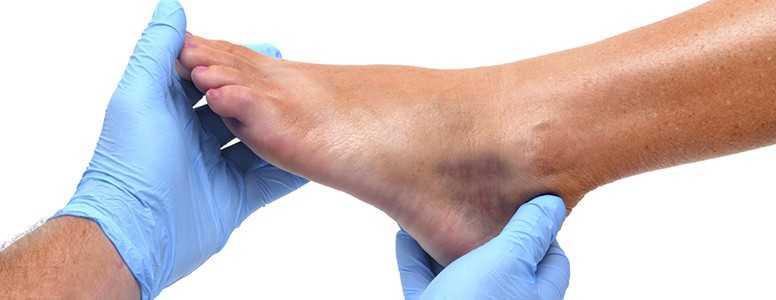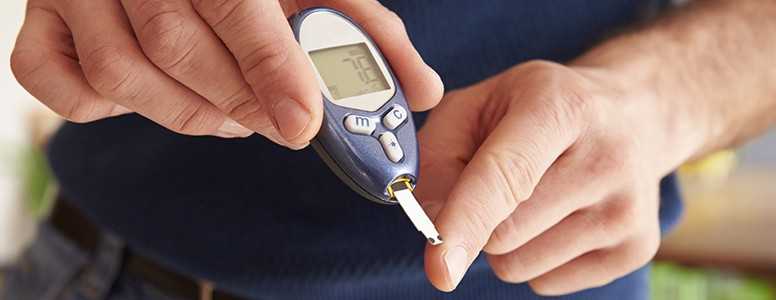Healthcare professionals should place a greater emphasis on diabetic foot problems, according to Robert P. Thompson, executive director of the non-profit Institute for Preventive Foot Health.
Thompson, speaking at the American Association of Diabetes Educator Annual Meeting 2015, urged healthcare professionals to examine the feet of their diabetic patients at every visit. He also recommended that people with diabetes check their feet twice a day.
Foot problems are one of the most common complications associated with diabetes. In most cases, diabetic neuropathy (nerve damage) impairs the diabetic person’s ability to feel pain, leaving them unaware when they develop small cuts or wounds on their feet. This, combined with the slow wound healing caused by diabetes, increases the risk of infection and foot ulcers. In severe cases, untreated foot ulcers may require amputation.
Regularly performing foot checks is an essential part of diabetes management. Foot checks should also be carried out by a healthcare professional at annual checks. According to Thompson, however, these checks should be far more frequent than that:
“A diabetic foot is at risk 100 per cent of the time. Feet do tell a tale and everyone involved in treating a patient with diabetes – doctors, their staff, allied care professionals and I’d like to include even retail or commercial footwear salespeople – should know the story and be able to interpret the signs.”
Thompson stressed that the particulars of foot damage vary from person to person, and that healthcare professionals need to understand the particular foot problems experienced by each of their patients.
“These mechanical and biological characteristics may be in and of themselves problems for all of us, but the complications they may present to persons with diabetes can make them much more dramatic,” said Thompson.
“Because their feet are so frequently insensate, the diabetic patient often never knows of the trauma his or her feet are experiencing until it’s too late.”
Thompson went on to discuss the importance of proper footwear. Wearing the right socks, he said, is hugely important; proper socks are a “medical accessory.”
He said: “Socks are the soft-tissue management tools. Acrylic and acrylic-blend socks will minimise the impact pressure on your feet.
“It’s not rocket science, it just takes watching the patients and improving on the kinetics of the body.”
Thompson emphasised the need for medical professionals to encourage their diabetes patients to check their feet regularly, in addition to conducting foot checks during consultations. In particular, doctors need to impress this need upon their patients with neuropathy, who may not be able to feel the pain of small or even larger wounds in their feet.
What's new on the forum? ⭐️
Get our free newsletters
Stay up to date with the latest news, research and breakthroughs.




